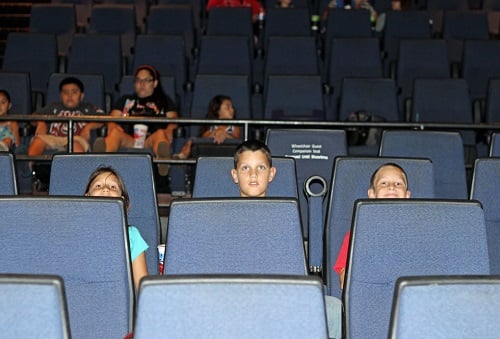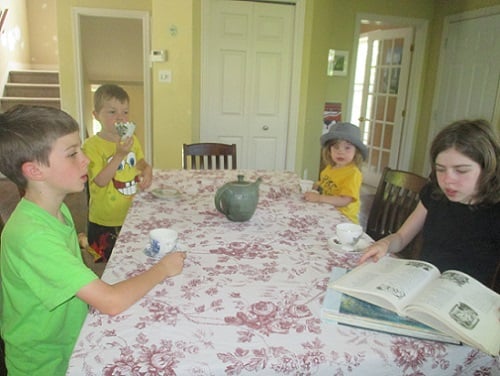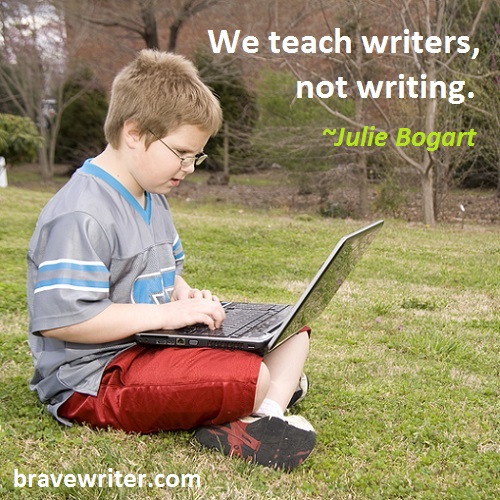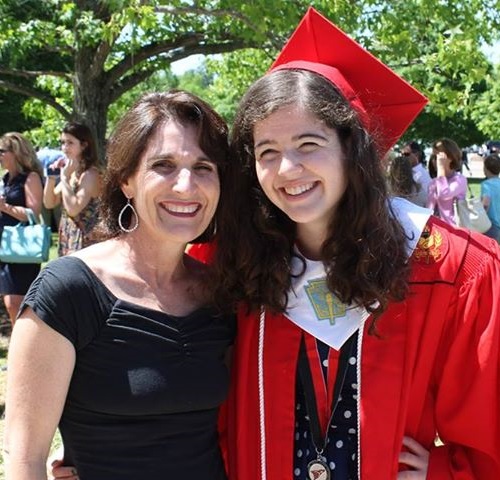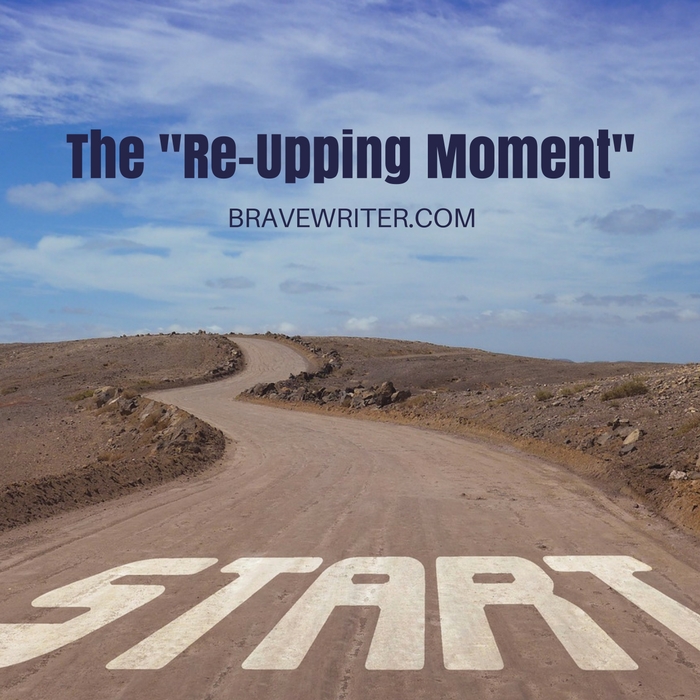
Remember when you decided to homeschool? Remember what you felt about “school” as a concept? As a notion?
You rejected “school.” You said to yourself, “I think I can do a better job, or at least, a more loving job, or possibly a more attentive-to-my-child job, at home, than they can provide at school.”
With that burst of bravery, you stood up to “the man” and said with your actions, “I can do this!”
You swiftly researched education, products, learning styles—a crash course in teaching or facilitating or disciplining or modeling or partnering—whatever method you chose—and marched forward with conviction and uneasy confidence.
The first fledgling steps into homeschooling sometimes mirror school (What else do you know?). But usually it doesn’t take long to see that you can relax—pay attention to a child’s interest, not do every page, switch routines mid-week, play with play-doh for an entire morning, and so on.
Somewhere, along the way, however, you go through your first bout of wavering confidence.
- She didn’t read at 7 years of age.
- His handwriting is illegible at 10.
- She can’t skip count.
- He isn’t writing full paragraphs like his cousins in school.
That moment shakes you. Your brain flips into reverse. Just like a new tired language learner reverts to grunting in her native tongue, you return to the only educational model you understand: school.
- You buckle down.
- You buy new books.
- You enforce a schedule.
- You require more work.
- You follow traditional strategies.
The life’s blood of your cozy home slips from view; apples, rulers, yellow school buses, and workbooks crowd your field of vision.
The net effect?
- Not progress.
- Not joy.
- Not home.
- School.
School—with its culture of pressure, evaluation, critique, grading, measuring, comparing, forcing a pace, testing, requiring, and shaming—comes flooding past your front door and right into your living room.
The choice to follow a school model for writing leads to stifled voice and plodding progress. Your child’s work may mirror the samples, but it doesn’t sing. You may finish the assignments, but none are memorable beyond the feeling of “getting it done.”
Is this what you wanted? This plodding, replication of school at home?
At some point, you may think to yourself, “I miss cozy. I miss natural. I miss the originality of this family.”
To start again—to screw up the courage to make homeschool more about “home” than “school”—requires a second commitment. It’s what I like to call the “re-upping moment.”
That moment is critical to long term home education.
My products and online classes are all about reinforcing that re-upping moment. You are supported in paying attention to your child’s person, his or her interests, pacing yourself, deep diving into subject areas, less is more, writing that expresses self (imperfectly, a bit like a banging drum initially), doing one invested thing at a time, using your real life as primary teacher rather than canned curriculum.
You can do this, just like you did when you started. In fact, it takes less courage than the first time. You already know you want to! You remember the feeling of joy and freedom of the initial months and years of home education.
Take heart. Your instincts are good.
Be home with your kids. Lead them into short lessons, big juicy conversations, writing voice, curiosity, and interest-led study. Your support and partnership make education a joyful exploration of LIFE not subjects for school.
You can do this!


